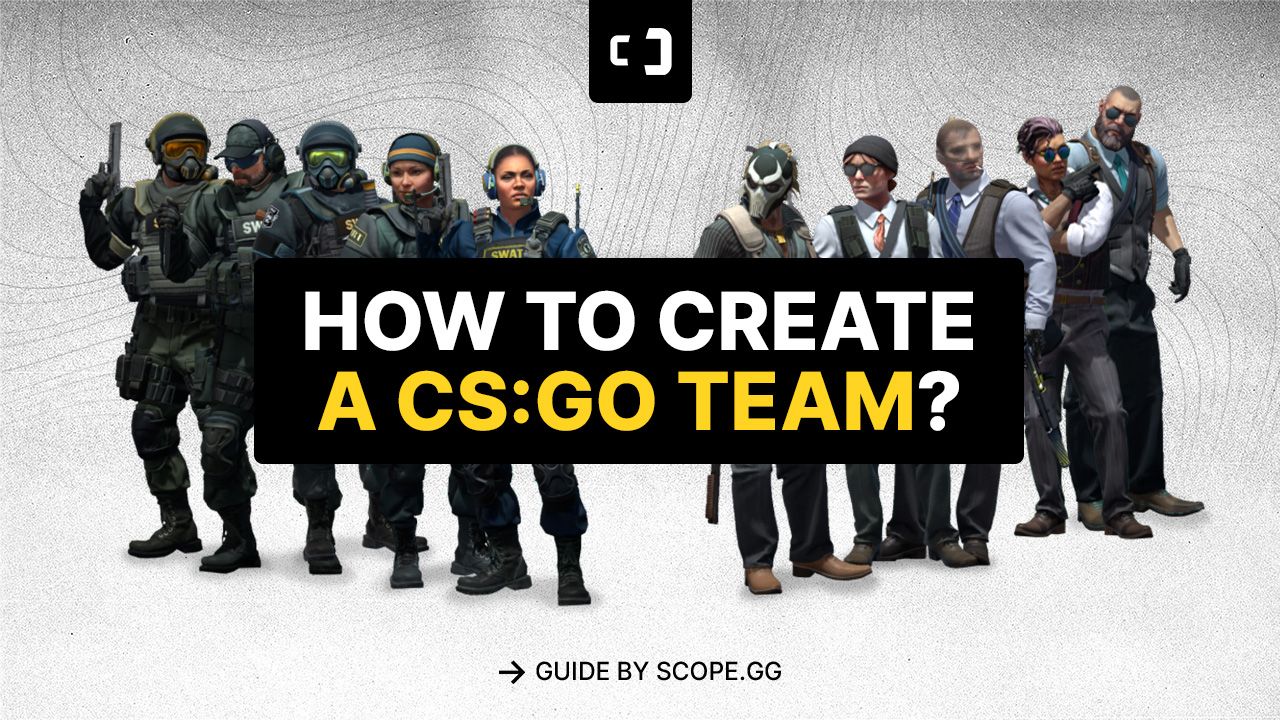Asik Cloud Insights
Your gateway to the latest trends in technology, cloud computing, and digital innovation.
Tactical Shenanigans: Crafting CSGO Strategies That Confound Opponents
Unleash your inner strategist with Tactical Shenanigans! Discover mind-bending CSGO tactics to outsmart your rivals and dominate the game!
5 Unconventional Strategies to Outsmart Your CSGO Opponents
In the competitive landscape of CSGO, relying solely on shooting accuracy or map knowledge can sometimes lead to stagnation. To truly outsmart your opponents, consider implementing these unconventional strategies. First, utilize sound manipulation to your advantage. By mastering audio cues and learning how to use grenades or movement to create misleading sounds, you can trick your enemies into revealing their positions or even retreating. Second, develop a unique playstyle that incorporates off-meta strategies. Instead of following the crowd with common weapon choices, experiment with lesser-used guns or unexpected tactics that catch your opponents off guard.
Additionally, consider engaging in psychological warfare during your matches. This could involve using fake strategies, such as pretending to rush one site while actually executing a play on another. Incorporating mind games not only keeps opponents guessing but also builds your reputation as an unpredictable player. Lastly, leveraging knowledge from other gaming genres can be immensely beneficial. Techniques from games like MOBAs or RTS can enhance your strategic thinking and improve team coordination, giving you an edge that most of your opponents may not anticipate.

Counter-Strike, a tactical first-person shooter, has captivated gamers since its release, offering intense multiplayer matches that require teamwork and strategy. Players often customize their characters with various skins, including the popular tiger strike gloves, which add a unique flair to their gameplay experience.
The Psychology of CSGO: How Mind Games Can Lead to Victory
The psychology behind CSGO (Counter-Strike: Global Offensive) is as crucial to success as strategic gameplay and sharp aiming skills. Players must engage in a complex dance of mind games, where understanding the mental state of both teammates and opponents can greatly influence the outcome of a match. Mind games in CSGO include bluffing, feints, and manipulating your opponent's expectations. For instance, consistently performing a specific tactic can lead enemies to anticipate your movements, allowing you to capitalize on their assumptions with a sudden change of strategy. This cognitive warfare is not merely about individual skill; it encompasses teamwork and communication, where players must read cues from their allies to coordinate effectively.
Moreover, the psychological effects of high-stakes environments cannot be overlooked. When players face intense pressure, their decision-making abilities can falter, leading to mistakes that can shift the balance of power in a match. Effective teams leverage this by sowing seeds of doubt, creating scenarios that induce anxiety or hesitation in their opponents. An often overlooked aspect is the power of positive reinforcement within the team; encouraging words and a supportive atmosphere can bolster a team's confidence, enhancing their overall performance. Thus, mastering the psychology of CSGO is about developing not only your skills but also understanding the intricate mental dance that can lead to decisive victories.
Top 10 Tactical Mistakes CSGO Players Make and How to Avoid Them
Counter-Strike: Global Offensive (CSGO) is a game that requires keen tactical acumen, and even the slightest misstep can lead to defeat. One of the most common tactical mistakes CSGO players make is failing to communicate effectively with teammates. Clear and concise communication is crucial in ensuring that all players are on the same page during high-stakes matches. To avoid this mistake, consider adopting a consistent callout system and using voice or text chat to relay important information about enemy positions and strategies. This can significantly enhance team coordination and increase the chances of winning a round.
Another prevalent tactical blunder is neglecting to adjust strategies based on the opponents’ gameplay style. Players often stick to familiar tactics without observing how their enemies react and adapt. To avoid this mistake, take a moment to analyze the opposing team's movements and adapt your approach accordingly. For instance, if opponents consistently push a certain site, it might be beneficial to set up ambushes or rotate team members to counteract their strategy. By staying flexible and responsive, you can outmaneuver your adversaries and capitalize on their weaknesses.